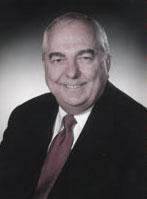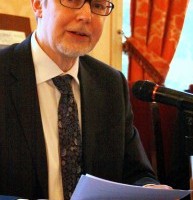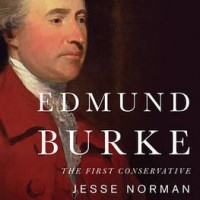“Non c’è successo economico senza ordine morale”, by Maria Claudia Ferragni
In questa prima settimana di luglio, nel corso della quale gli americani festeggiano l’anniversario della loro indipendenza, si trovano in Italia due economisti legati alla presidenza Reagan: Howard Segermark, ex-collaboratore di Arthur Laffer, l’economista che ha impostato teoricamente la Reaganomics, e Grover Norquist, fondatore e Presidente di Americans for Tax Reform, considerato uno degli uomini più influenti di Washington (oggi parlerà in un incontro pubblico a Roma alle 17 presso l’Hotel Nazionale, in piazza Montecitorio). Entrambi ospiti del Columbia Institute, portano in Italia la loro esperienza di indomiti paladini della libertà economica e individuale. Ma ci raccontano anche di un’America che sta vivendo un momento storico di transizione e che si sta avviando sempre più in fretta verso la pericolosa strada dello stato sociale europeo, anche per ciò che riguarda la messa in discussione dei valori fondanti la civiltà occidentale.
Della attuali sfide della galassia conservatrice abbiamo parlato a Milano con Howard Segermark, oggi vice presidente della Patten Associates, società specializzata in relazioni con il governo, esperto lobbista a difesa dei diritti di proprietà, attivo in molteplici associazioni e fondazioni conservatrici anche in ambito culturale.
Signor Segermark, qual è la situazione attuale del movimento conservatore negli Stati Uniti?
I Conservatori si trovano ad affrontare i problemi creati dalle politiche del presidente Obama. In particolare, il suo risultato più importante nel corso del primo mandato è stata l’approvazione dell’Obamacare (la nuova legge che rende obbligatoria l’assicurazione sanitaria per tutti, ndr), una vera e propria usurpazione massiccia dell’assistenza medica da parte dello stato. E’ ora chiaro che la legge approvata dal Congresso non potrà essere applicata a partire dall’anno prossimo, come era stato promesso, e non potrà essere implementata senza un massiccio incremento delle tasse. Inoltre, circa il 25% degli americani resterà ancora privo di un’assistenza sanitaria adeguata. Quindi la legge non ha risolto il problema per il quale è stata creata, sarà molto più costosa del previsto e, infine, probabilmente ridurrà l’ambito dell’assistenza medica per gli americani. Ciò accade perché non è mai successo che i burocrati siano in grado di risolvere un problema. Il Senatore repubblicano Paul Ryan (candidato alla Vice-Presidenza lo scorso novembre, ndr) ha invece una proposta alternativa, che restituisce alla persona la libertà e responsabilità di decidere quale piano di assistenza sanitaria scegliere e mi auguro che possa essere approvata se nel 2016 dovesse essere eletto Presidente un repubblicano. L’Obamacare, invece, impone ai giovani pesanti carichi fiscali per sostenere le spese sanitarie degli anziani; mentre sarebbe meglio, come previsto da Ryan, creare incentivi perché i giovani possano risparmiare per pagarsi da soli l’assistenza medica quando saranno a loro volta anziani.
Quali sono altri problemi che i conservatori devono affrontare?
La grande recessione economica. Da quando Obama è stato eletto, gli Stati Uniti hanno avuto una crescita inferiore al 3% in ciascun quadrimestre, senza soluzione di continuità. Di conseguenza, l’America ha vissuto una diminuzione di ricchezza a cui non era abituata, al contrario dell’Europa che sembra essersi assuefatta a questi dati statistici. Le politiche di Obama hanno sottratto circa 2.800 miliardi di dollari all’economia e non possiamo non pensare a quale tragedia sia questa perdita di ricchezza in termini di posti di lavoro, investimenti, ricerca. Quando l’economia vive un periodo di stagnazione, in Europa le persone si rivolgono allo Stato, che in un certo senso acquisisce nuovi “clienti”: ecco, questa situazione per noi americani è nuova, ma siamo arrivati al punto che ci sono oggi 70 milioni di americani che vivono con i “food stamps”(buoni pasto statali, ndr), ma è un sistema molto corrotto perché ormai da molti anni i food stamps vengono venduti sul mercato nero a 50 centesimi l’uno per ogni dollaro di valore. Ad esempio, una famiglia di 4 persone che ha 100 dollari in buoni pasto può ottenerne 50 vendendoli al mercato nero, per comprare la birra… E’ quindi un sistema che per il 50% si risolve in uno spreco totale.
Osservandoli dall’esterno, sembra che i Conservatori non riescano a trovare la strada giusta o il candidato giusto per risollevarsi, è vero?
Vede, tutta la politica americana negli ultimi vent’anni si è trovata ad affrontare due grandi problematiche: la caduta del Muro di Berlino e l’11 settembre. Nessuno dei due partiti è unanime nel modo di risolvere questi problemi. Obama ha ridicolmente vietato l’uso della parola “terrorismo”, definendo ad esempio l’attacco di chiara e lampante matrice jihadista nella base militare di Fort Hood del 2009 “un’atto di violenza sul posto di lavoro”… Si tratta perciò davvero di una situazione politica complessa e anche i Democratici hanno difficoltà nel digerire questo tipo di interpretazione dei fatti. Inoltre, nel mondo di oggi in cui gli Stati Uniti sono l’unica vera super-potenza globale è molto difficile gestire la politica estera: bisogna forse smettere di pensare di intervenire in ogni singolo conflitto nel mondo? L’esempio della Siria è emblematico: mi chiedo se gli Stati Uniti hanno un interesso diretto in quel conflitto. L’unico che ha mai sostenuto la politica americana è Assad… certo, è un dittatore. Ma se gli Stati Uniti consentono ai jihadisti e ai cloni della Fratellanza Musulmana di conquistare un altro Paese, questo non aiuterà il conflitto né la causa della civiltà occidentale.
Come ha reagito l’opposizione repubblicana?
Ecco, si tratta di uno degli esempi migliori della spaccatura che stanno vivendo. Il senatore John McCain è andato in Siria e ha incontrato molte persone chiedendo di creare una “no fly zone” sulla Siria, che corrisponde a un atto di guerra, mentre Obama sta cercando di armare alcuni dei ribelli, ma non sa bene chi siano e, di fatto, non lo sa nessuno. E’ indubbio allora che pensare di intervenire per creare una democrazia, come non siamo riusciti a fare in Iraq e in Afghanistan, diventerebbe un atto di hubris politica.
Read the complete article in La Nuova Bussola Quotidiana
The Crisis of Fatherhood, by Stratford Caldecott
The Winter 2013 issue of Humanum, the freely available online journal of the Pope John Paul II Institute for Studies on Marriage and Family in Washington, DC (or rather the Institute’s Center for Pastoral and Cultural Research) is devoted to the crisis of fatherhood in our culture. It contains articles and book reviews devoted to the literature on this topic. (The following notes are based on the Editorial for the issue.)
The collapse of marriage in the developed world is happening faster than many believed possible. Civil marriages exceed religious ones, and both are in steep decline. In Italy, the heartland of Catholicism, where the largest religious institution on earth might be expected to have some influence, there are only 3.6 marriages a year for every thousand inhabitants, compared to 4.7 for the European Union as a whole—in the wealthy parts of Italy the numbers are even lower. Clearly most couples now do not get married. Single parents, especially single mothers, are commonplace. Given that it is hard enough for a stable, loving couple to bring up a child, or children, the difficulties faced by single parents are formidable.
The recovery of fatherhood is not merely a political and sociological challenge, to be met by strengthening the legislation that keeps families together, deters separation, and insists that a man takes more responsibility for his children (whether he be married or not). What needs to be recovered is a vision, a sense of responsibility, something the philosopher Gabriel Marcel in his book Homo Viator (1951) called a “creative vow”.
The father is more than a biological instrument above all when he is prepared to consecrate himself for a role that transcends the physical. He gives of himself biologically to the mother when the child is conceived; but he gives of himself spiritually when he accepts a continuing and indeed eternal responsibility for the gift that God gives him in return—the gift of the child whom he did not fashion and whose destiny he cannot determine or control.
No longer the primary breadwinner, today’s father is not even necessarily the one who engendered his own child, thanks to the wonders of IVF. Technology, which already in the 1960s severed the connection between sex and reproduction, now promises to separate gender from parenthood entirely. It is hardly surprising that so many fathers are missing from the landscape of the contemporary family.
In the current issue of Humanum Nicholas J. Healy concludes:
“It is tempting to cover the wounds that result from an absent father or from an abusive father by diminishing the significance of fatherhood. But this forgetfulness of origins leads to a greater loneliness and metaphysical confusion. A more promising path is to reflect more deeply on the hidden Fatherhood of God that undergirds and encompasses every human origin no matter how broken.”
Read the complete article in The Imaginative Conservative
Burke, Party, and the Human Person, by J.P. O’Malley
The philosopher and statesman Edmund Burke is often lauded as the founder of modern conservatism. Burke was born in Dublin in 1729 and educated at Trinity College. In 1750 he moved to London, where he stayed for the remainder of his life.
When he arrived in London, Burke had a very brief career in law, but he soon dedicated his life full-time to critical thinking, writing, and politics. Over his long and distinguished career Burke published a number of groundbreaking books, including A Philosophical Enquiry into the Origin of Our Ideas of the Sublime and Beautiful and Reflections on the Revolution in France.
Burke lived during an extraordinary period in British history, where his good friends included Samuel Johnson, Adam Smith, and David Hume.
In his new book, Edmund Burke: The First Conservative, Jesse Norman dissects Burke’s outstanding intellect and his career. He then asks how Burke’s ideas might be applied to modern politics.
Jesse Norman is a Conservative MP for Hereford and South Herefordshire in the UK. He is a senior fellow at the UK think tank Policy Exchange and has taught philosophy at University College London and Birkbeck College.
In the book you discuss how Burke believed the only way to destroy what he insisted was the “King’s network of patronage” was through political parties. Can we see this as the precursor for the modern political party?
Well, the idea of a political party for Burke is contrasted with the idea of a faction, which is a group of people who come together to achieve a goal. They have no further glue that keeps them together after this goal and therefore they tend to disperse. In opposition to that idea is a party, in which a group of people are united around a principle that cannot be exhausted. Therefore they do not disperse after some particular achievement. They maintain themselves.
What is so fascinating about Burke’s conception of a political party is that he then builds into this a wider notion of what you might call a para-constitutional role. This is where political parties serve a number of functions: they act to debate, to create an oppositional government, to train and recruit political talent, and to make political principles more effective and create an open government.
So I think when people denounce political parties now within our current political system, they are often unaware of the alternatives. And the alternatives are a system of factions, which you see in the eighteenth century, before the idea of party politics really took over. If it’s not a politics of faction, then you get a politics of special interests: this is what you see in America presently, where very lightly whipped parties are dominated by a money interest.
You describe Burke as one the earliest postmodern political thinkers. You also refer to him as one of the greatest critics of the modern age and of liberal individualism. Can you briefly talk about this?
Well Burke is not a postmodernist in the sense that he does believe that there is truth and falsehood. He doesn’t believe that everything is a matter of narrative or power relations. But he is a postmodern: that is to say his thought contains within it a critique of modernity. And that critique begins with an understanding of human nature. Because where modernity goes wrong—from a Burkean perspective—is in the application of human nature to our reasoning of human affairs.
That is something that you find within liberal individualism: this idea of treating a human being as a mere economic agent. This gives rise to cultural feedback that then bends the nature of humans, because they react to how they are understood. So you have this perception that people are simply motivated by greed and fear. That greed-and-fear psychology then gets embedded in a culture.
But what Burke says is that humans are not mere economic agents; what really matters is how they link with each other. We cannot see people only in terms of incentives, but in terms of habits and affections as well.
When you do that, you get a rich conception of the social order. It’s an idea where people are not just driven by greed.
You get a much better idea and understanding of how people actually behave. You also avoid these effects where people are encouraged to be greedy, and therefore they become greedy as a result.
Read the complete interview in The University Bookman


